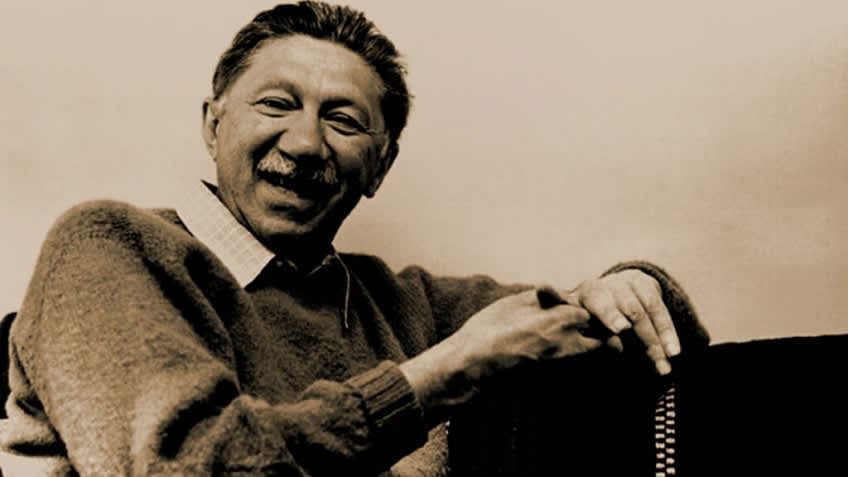Wednesday, October 12, 2022
The Secular and The Sacred in Mystical Experience
Abraham Maslow
https://www.youtube.com/watch?v=1Y4ubyz3fbY
Film of Maslow dicussing peak experience,
Critics of my religious experience (RE) arguments have turned to Abraham Maslow as a counter to Ralph Hood, inventor of the M scale. Maslow is a good choice superficially but I have studied him a lot.He is one of my favorite thinkers in social sciences. He was one of the first thinkers I read on mystical experience.
The reason they think Malosw fends off Hood is because Maslow was an atheist. He found mystical experiences among all types of people. He took it beyond the ranks of the religious mystic and made it everyday secular and non religious. Although he has nothing on Martin Luther who turned milking cows into the worship of God.
First Maslow did say he had to strip away the relogocity from the experience. Part of doing that was to call it "peak experience." He was not saying that Peak is a separate experience from mystical. He did not say peak is a secular version. it's just a different name, one that gets away from rekuguiyw connotations in the term mystical experience. Maslow said th e atheist and the religious believer can walk togeather qhit a lomgway dowwn the road. They can the atheists who usehimagaimt Hood would never go two feet with a believer. Maslow had the hatred or anti God feeling that Loftus or Dawkins have.
The major question I want to answer is does the secular nature of mystical experience, at least some experiences, call into question the presence of God in mystical experience? These atheists think they ust addimg God nevasue see God everything. Which is it?
The blog danger in this kind of discussion is that people invariably bring ideology then start saying your ideology is wrong. I don't have one. We need to stay alert to that tendency. I spoke with Dr, Hood On Thursday he said what I just said here.I ask him do you believe in God? If so, is God personal or impersonal? He said he doesn't use such language because it seeks to pin down what God is and that means to ideologize God. God is beyond our understanding. Hood studies snake handlers.He is equally comfortable with snake handlers or atheists.
Let's apply this principle to the issue of :secular" mystical experience. Let's assume God gives each human equiemtm an instinct or capacity to sense his presence. But that capacity is always operative and can sense other presences. I've seen studies that say when we feel like we're being watched we are right 60% of the time.[1]
If God is the ground of being and transcends the notion of a big man in the sky then God is involved in everything, that means we can sense God's presence in nature and in life even when we choose not to recognize what that presence is. Maslow says he stripped away the Divine aspect from the experience. We should take that literally, he just chose to focus on one aspect of the presence and pretend there's nothing more to t. He talks about the runner havimg a bliss attack after his second wind but how can he know if the man's heart is lofting to Go or not. They didn't recognize it but is it really vid of God?
That shows us theoretically God could be there but how can we know? What reason do we have for actually thinking so? The experiences are the same for either group, all pervasive sense of love and undifferentiated unity. Those experiences people find god in are real and the others are experiencing the same but just refusing to count it as God.
As Paul said: 21 "For although they knew God, they neither glorified him as God nor gave thanks to him, but their thinking became futile and their foolish hearts were darkened."(Rom 1:21).
[1] Edward F. Kelley and Emily Williams Kelley, et al, Irreducible Mind: Toward a Psychology for the 21st Century. Boulder, New York, Toronto: Rowman and Littlefield Publishing Inc, 2007/2010.
Subscribe to:
Post Comments (Atom)


1 comment:
Maslow didn't strip away the "Divine" aspect from the experience. He just chose to focus on "the experience" and not add to it.
Post a Comment